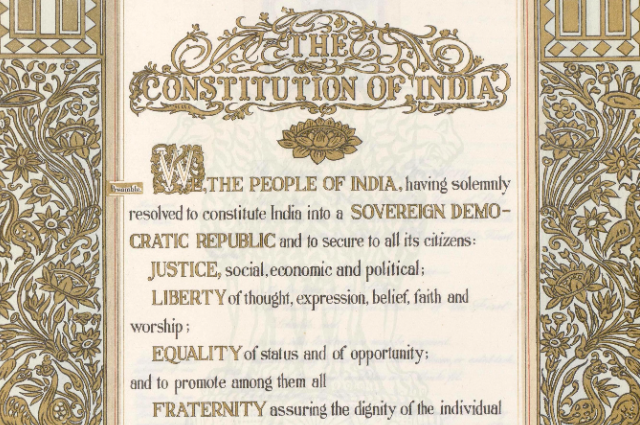Republic Day in India is a momentous occasion that commemorates the adoption of the Constitution of India on January 26, 1950. This day holds immense significance as it marks the transformation of India into a sovereign, socialist, secular, and democratic republic, guaranteeing its citizens justice, liberty, equality, and fraternity. The celebration of Republic Day is not merely a ceremonial affair but a poignant reminder of the country’s rich cultural heritage, democratic ethos, and commitment to pluralism.
Historical Context:
To appreciate the significance of Republic Day, one must delve into India’s struggle for independence from British colonial rule. The freedom movement, led by iconic figures like Mahatma Gandhi, Jawaharlal Nehru, and Dr. B.R. Ambedkar, culminated in India gaining independence on August 15, 1947. However, the country still lacked a permanent constitution, relying instead on the Government of India Act 1935 enacted by the British Parliament.
The task of drafting a constitution fell upon the Constituent Assembly, comprising eminent leaders from diverse backgrounds, ideologies, and regions. Dr. B.R. Ambedkar, often hailed as the “Father of the Indian Constitution,” played a pivotal role in framing this historic document that would serve as the cornerstone of Indian democracy.
The Preamble:
At the heart of the Indian Constitution lies its Preamble, which encapsulates the ideals and aspirations of the nation. It begins with the solemn declaration, “We, the people of India,” emphasizing the sovereignty vested in the citizens. The Preamble eloquently articulates India’s commitment to justice, liberty, equality, and fraternity, enshrining the principles that guide the functioning of its democratic institutions.
Symbolism of Republic Day Parade:
The Republic Day celebrations are characterized by the grandiose Republic Day Parade held in the national capital, New Delhi. This spectacular event showcases India’s rich cultural diversity, military prowess, and technological achievements. The ceremonial procession, featuring colorful tableaus, folk dances, military bands, and state-of-the-art weaponry, exemplifies the unity in diversity that defines the Indian republic.
The centerpiece of the parade is the impressive march past by the three wings of the Indian Armed Forces – the Army, Navy, and Air Force – symbolizing the nation’s defense preparedness and commitment to safeguarding its sovereignty. The display of military might is complemented by vibrant cultural performances from different states, highlighting India’s cultural mosaic and heritage.
Inclusive Celebrations:
Republic Day celebrations extend beyond the national capital, with every state and union territory marking the occasion with patriotic fervor. Schools, colleges, government offices, and communities organize flag-hoisting ceremonies, cultural programs, and debates on constitutional principles. This inclusive approach ensures that citizens from all walks of life actively participate in commemorating the spirit of republicanism and constitutionalism.
Educational Significance:
Republic Day serves as an invaluable educational opportunity to familiarize citizens, especially the youth, with the principles enshrined in the Indian Constitution. Schools and educational institutions organize special assemblies and events to discuss the significance of the constitution, fundamental rights, duties of citizens, and the role of democratic institutions in nation-building. Through these initiatives, the younger generation imbibes a deeper understanding of their rights and responsibilities as citizens of a democratic republic.
Challenges and Aspirations:
While Republic Day is a time for celebration and reflection, it also prompts introspection regarding the challenges facing the nation. Issues such as poverty, inequality, corruption, communalism, and regional disparities continue to pose significant hurdles to India’s quest for inclusive development and social justice. However, Republic Day also instills hope and optimism, reminding citizens of their collective resolve to overcome these challenges and build a more equitable and prosperous society.
Global Significance:
Republic Day is not only a national event but also holds global significance as it underscores India’s commitment to democratic governance, pluralism, and the rule of law. The celebration of Republic Day resonates with democracies around the world, reaffirming the universal values of freedom, equality, and fraternity.
Conclusion:
Republic Day is more than just a commemoration of a historical milestone; it is a reaffirmation of India’s democratic ideals, constitutional values, and cultural heritage. As the nation celebrates its journey towards becoming a republic, it renews its commitment to upholding the principles of justice, liberty, equality, and fraternity enshrined in the Constitution. Republic Day serves as a poignant reminder of the sacrifices made by the founding fathers and a call to every citizen to uphold the spirit of democracy and contribute towards building a vibrant and inclusive nation.

